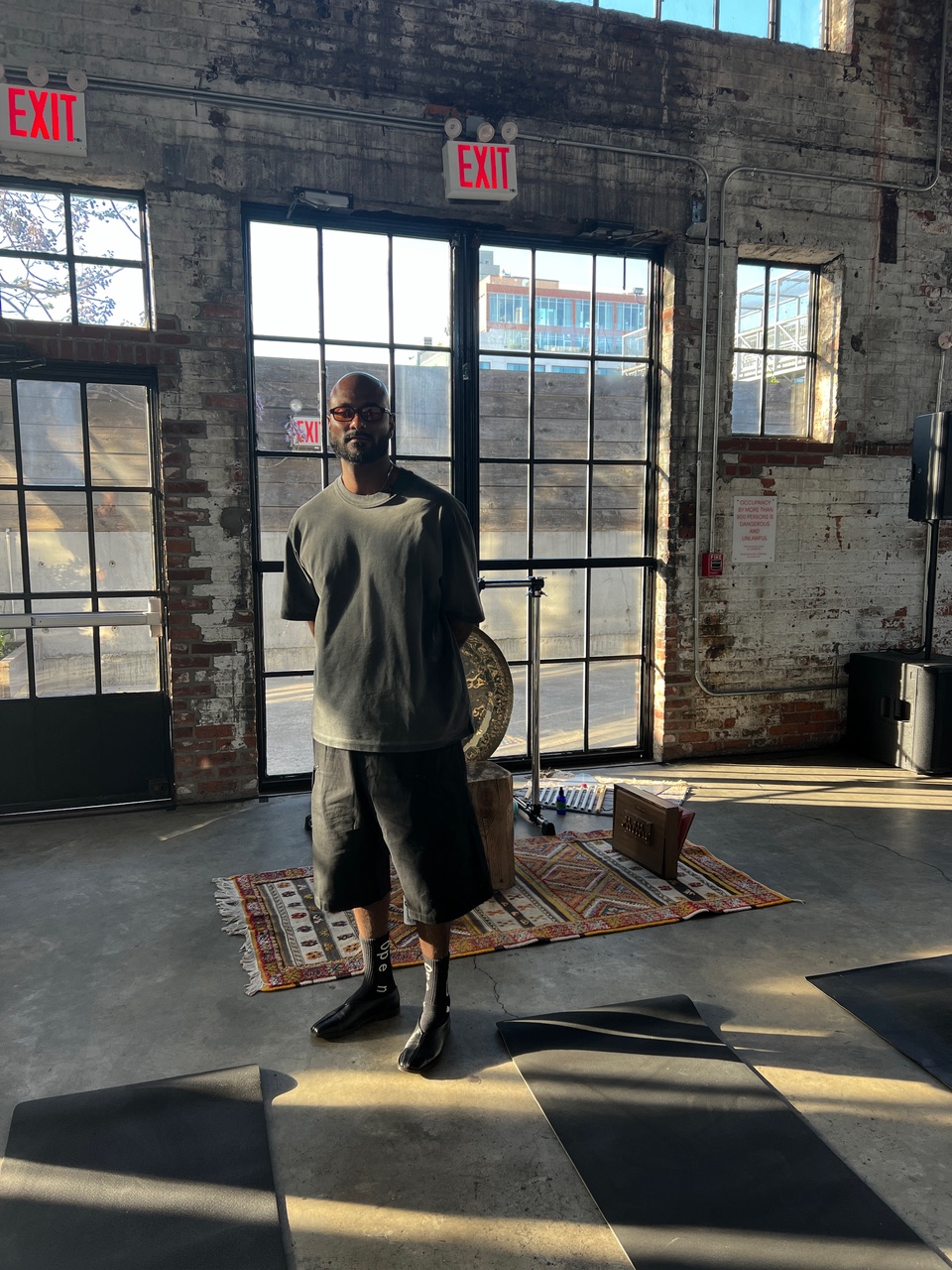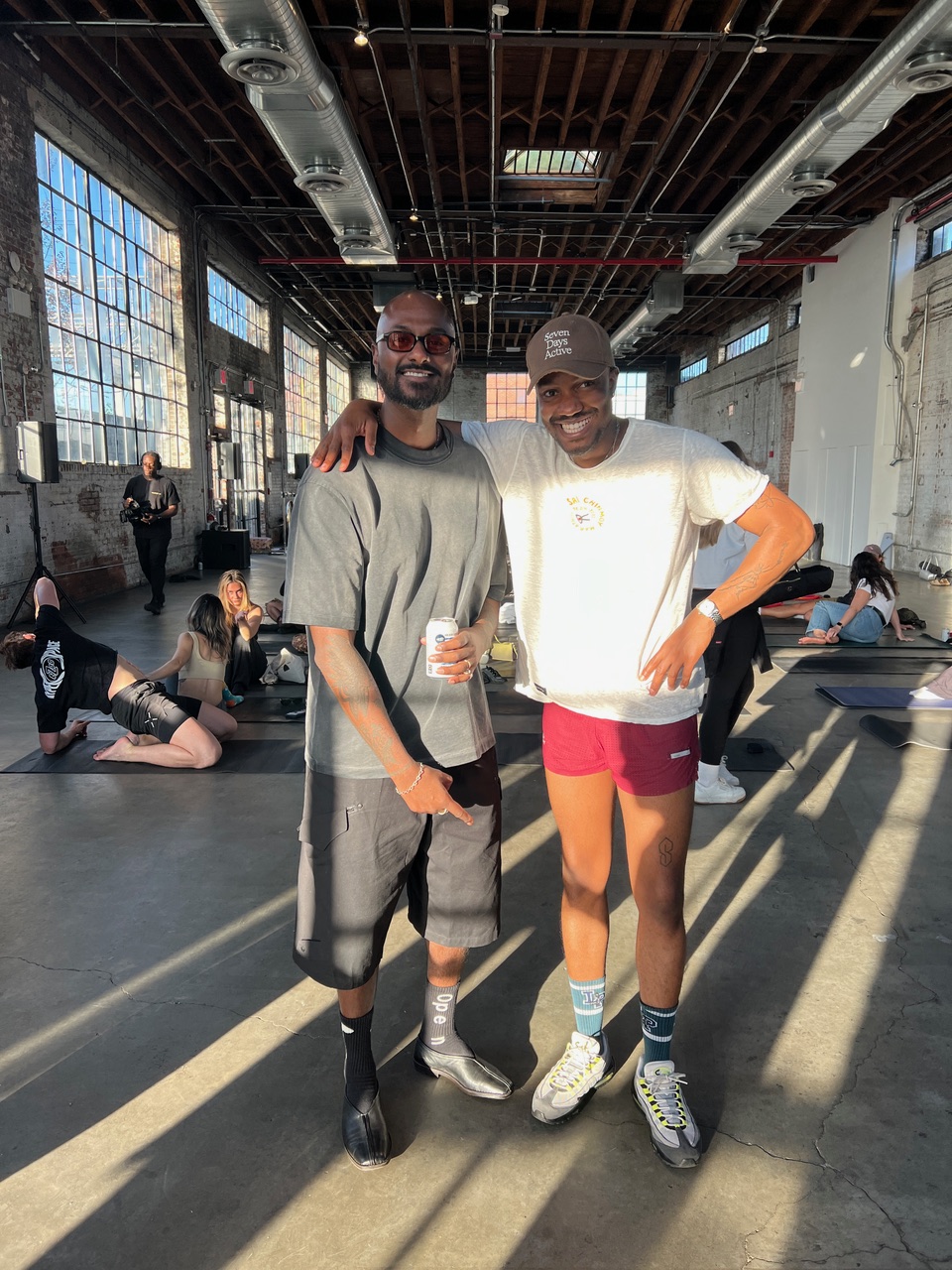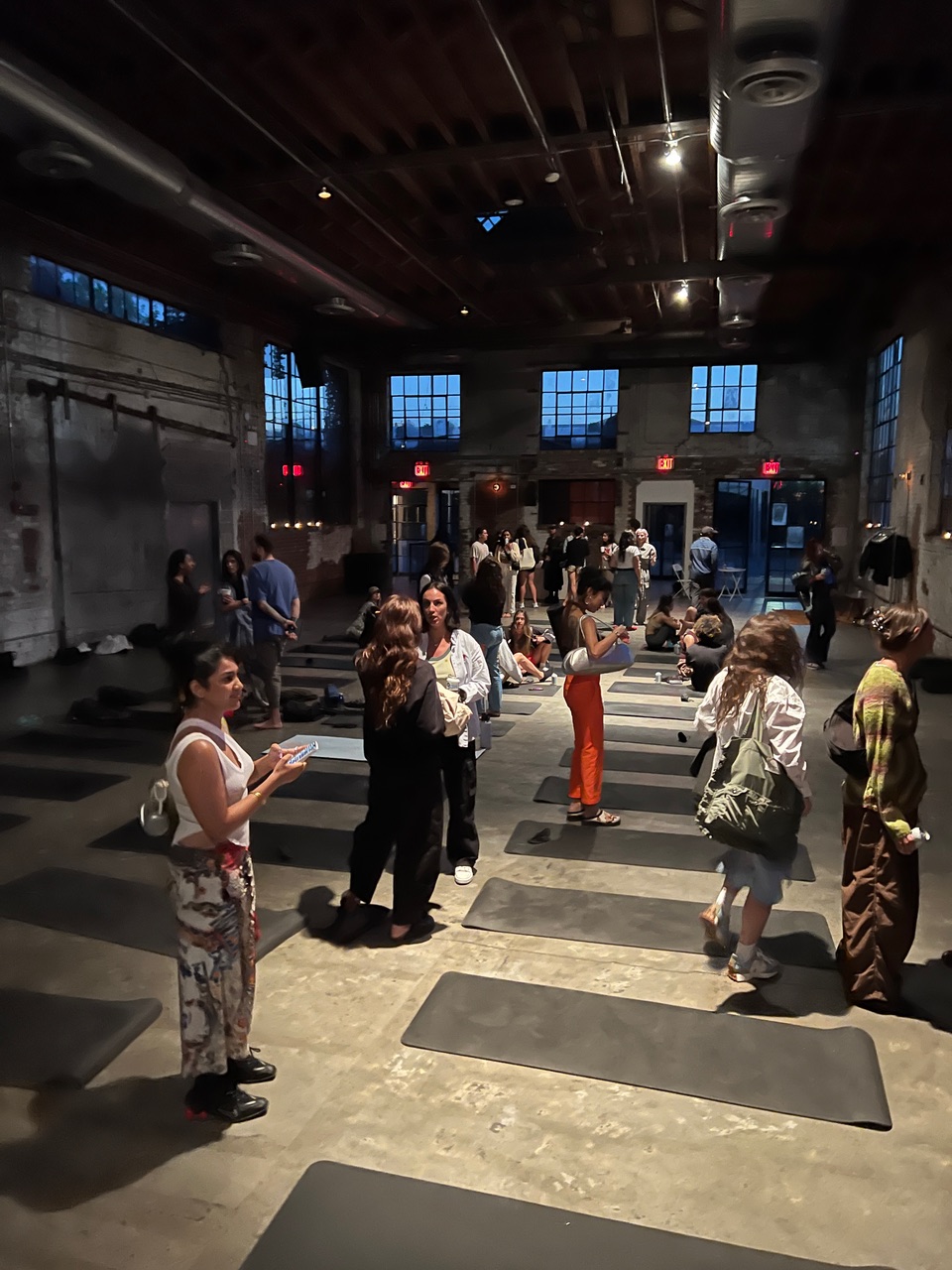Celebrating Father's Day with Hit-Boy and Mitchell & Ness
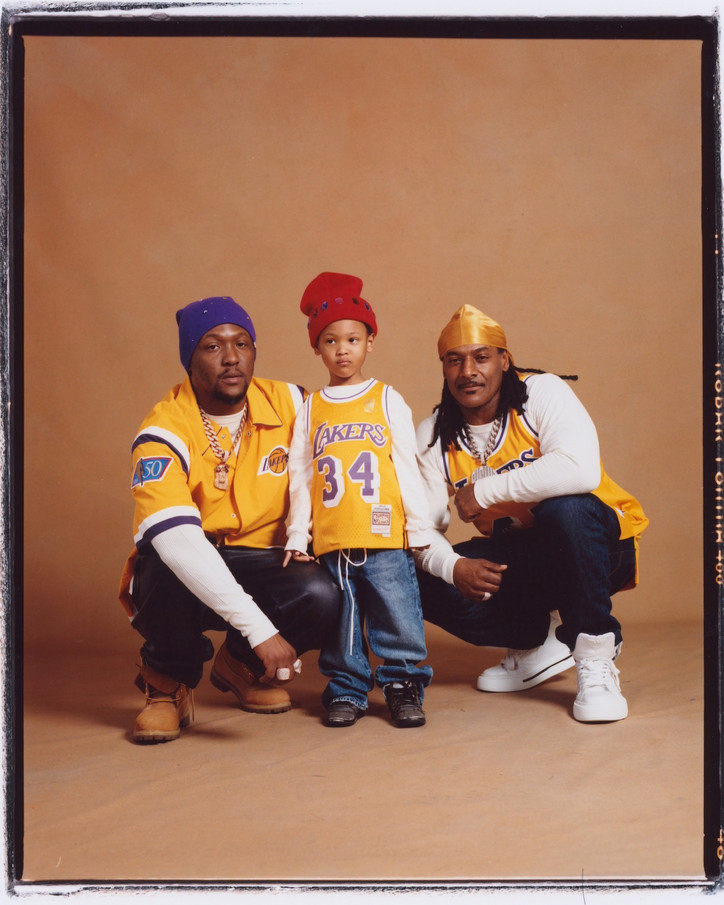

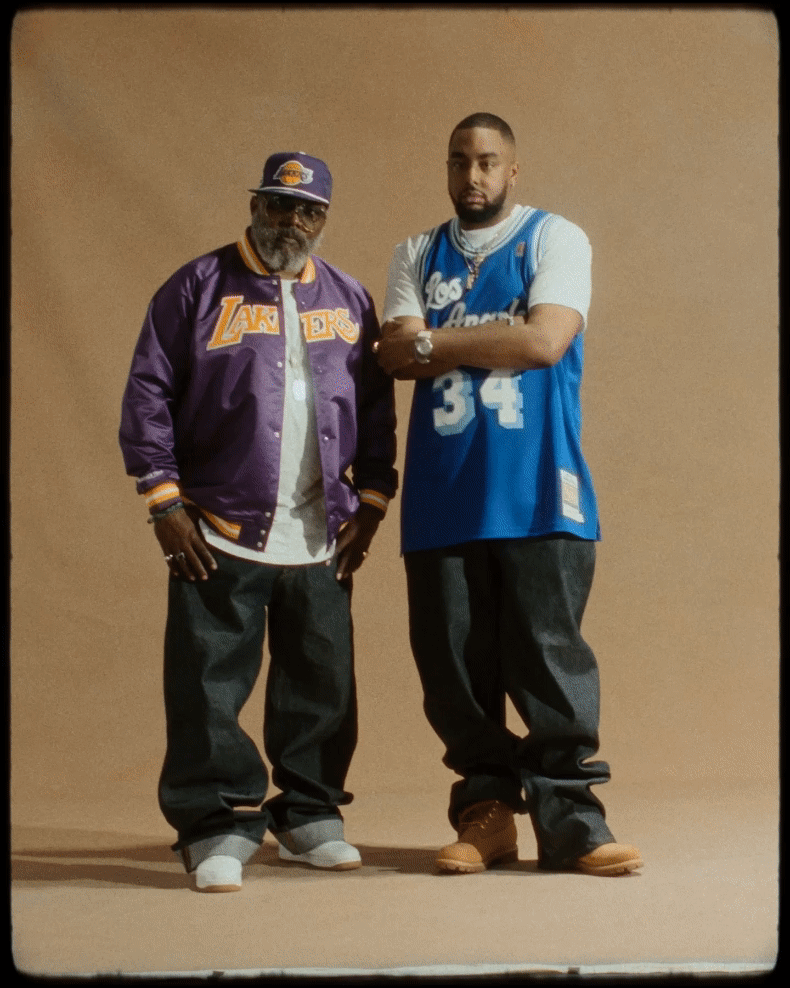
Stay informed on our latest news!



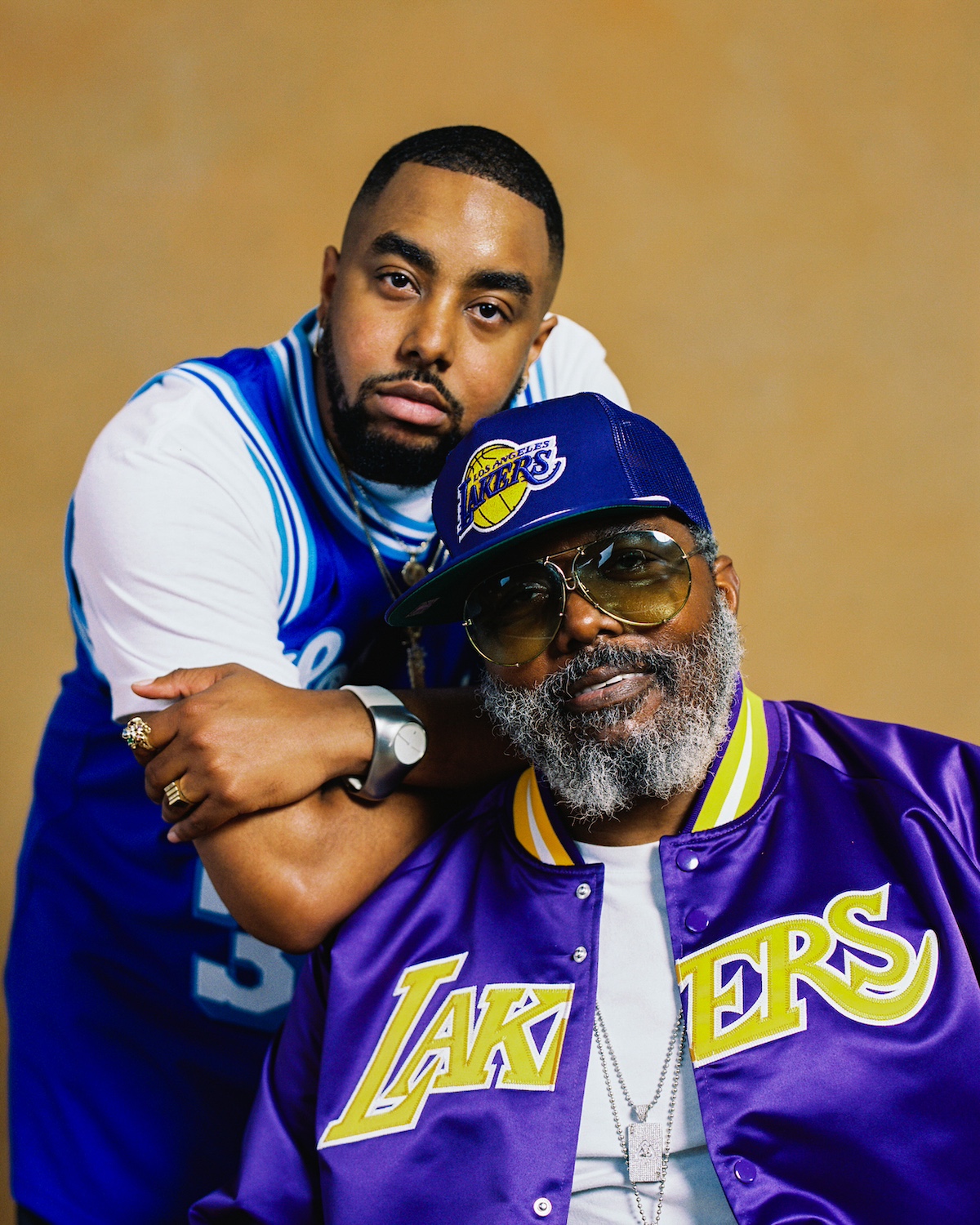
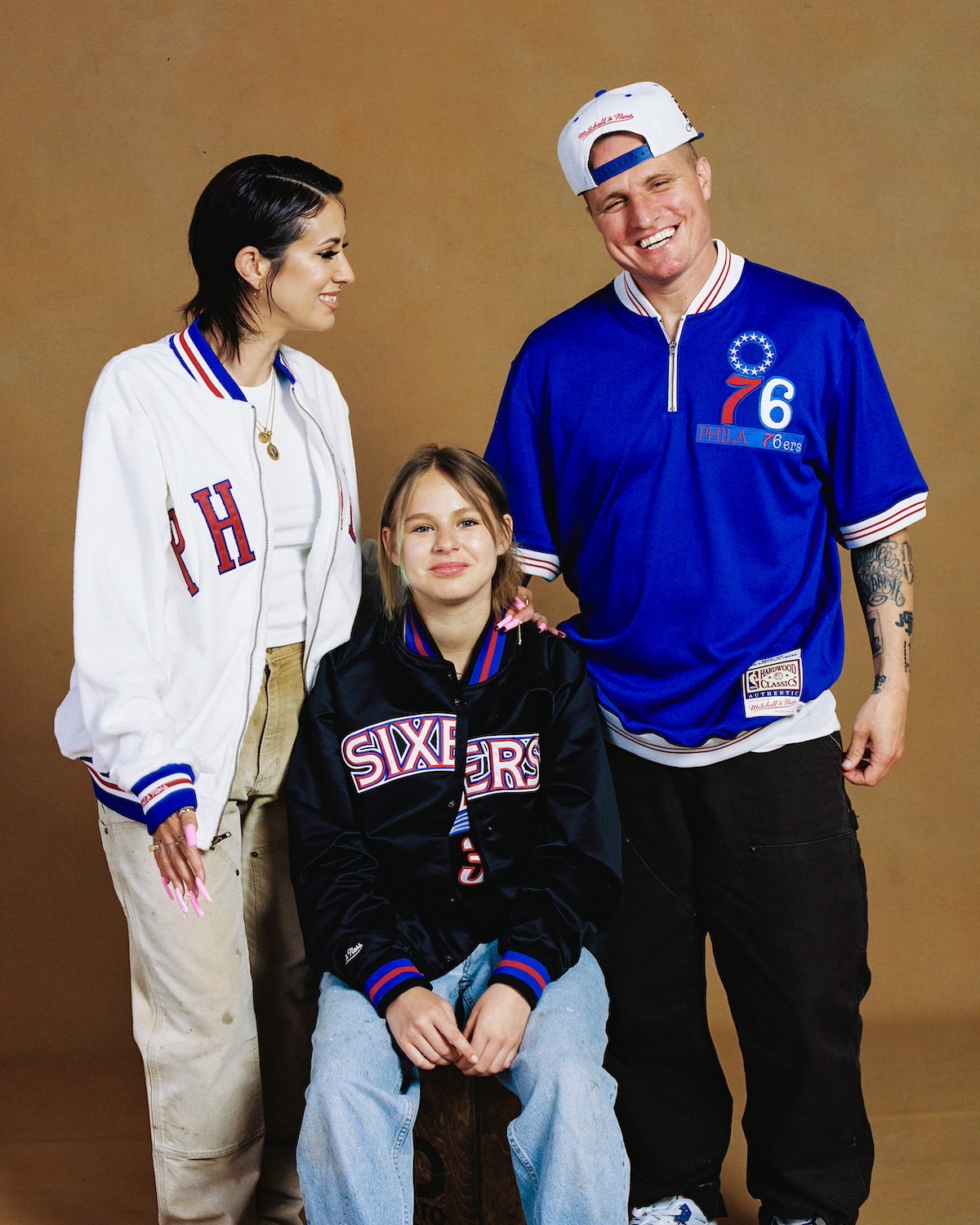
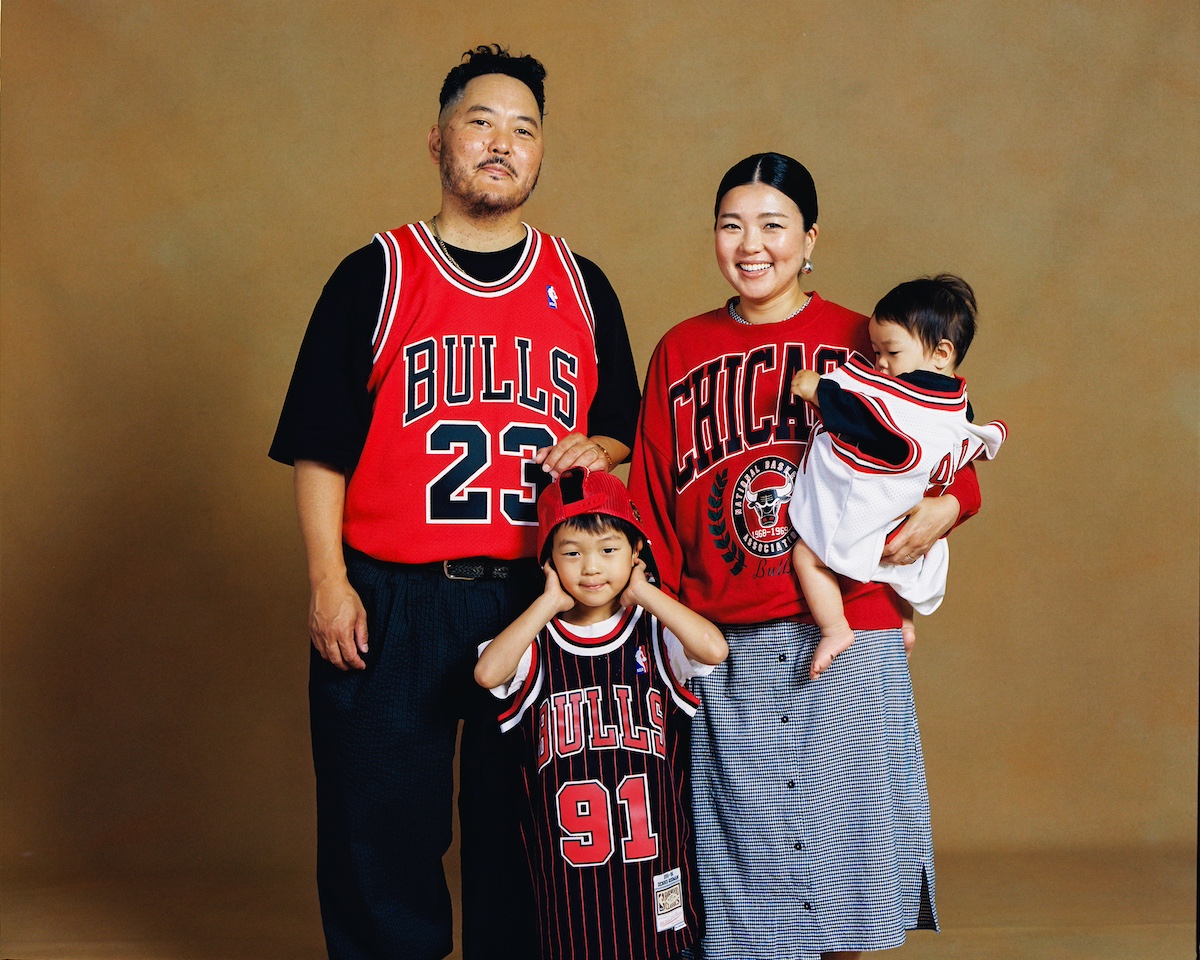
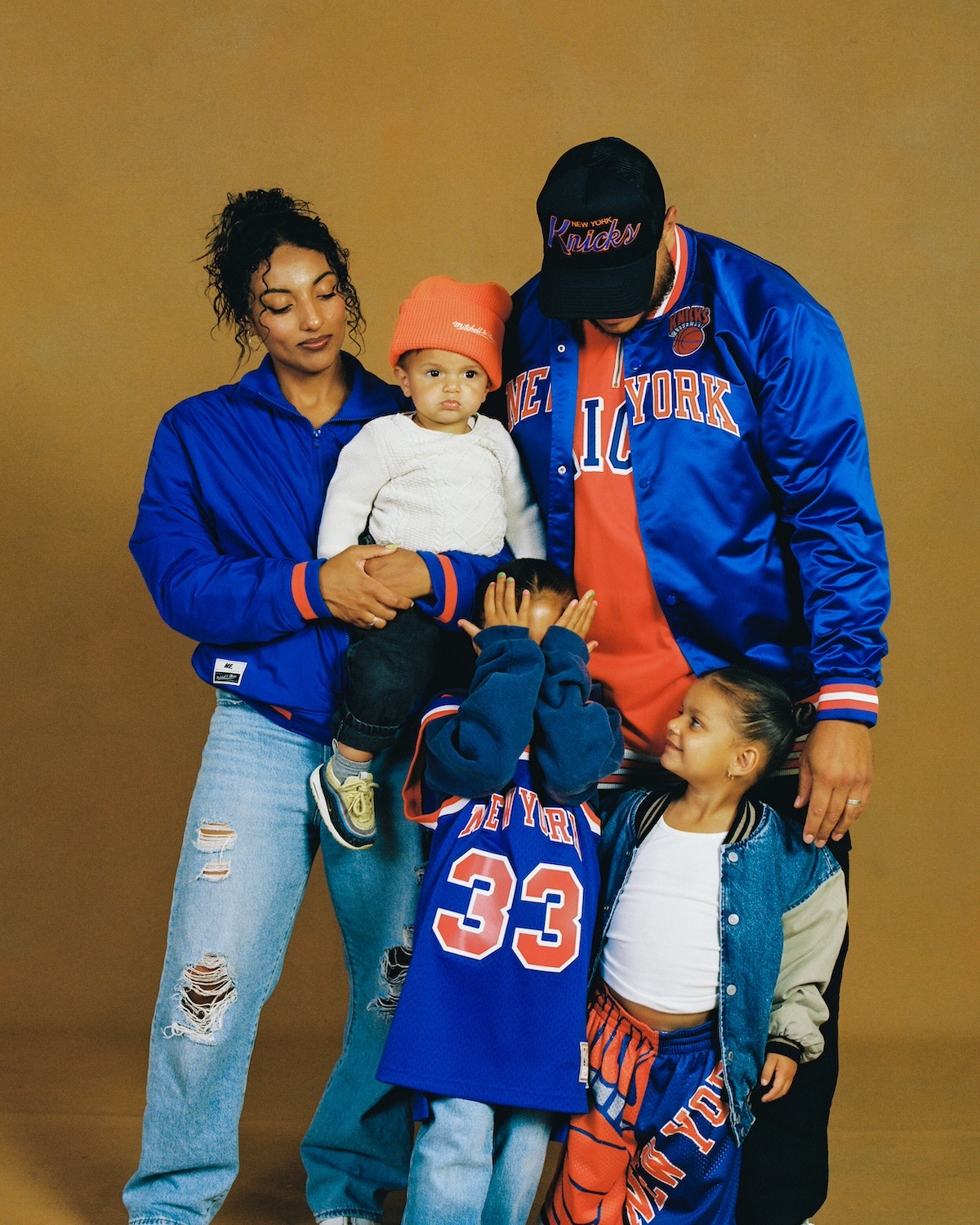

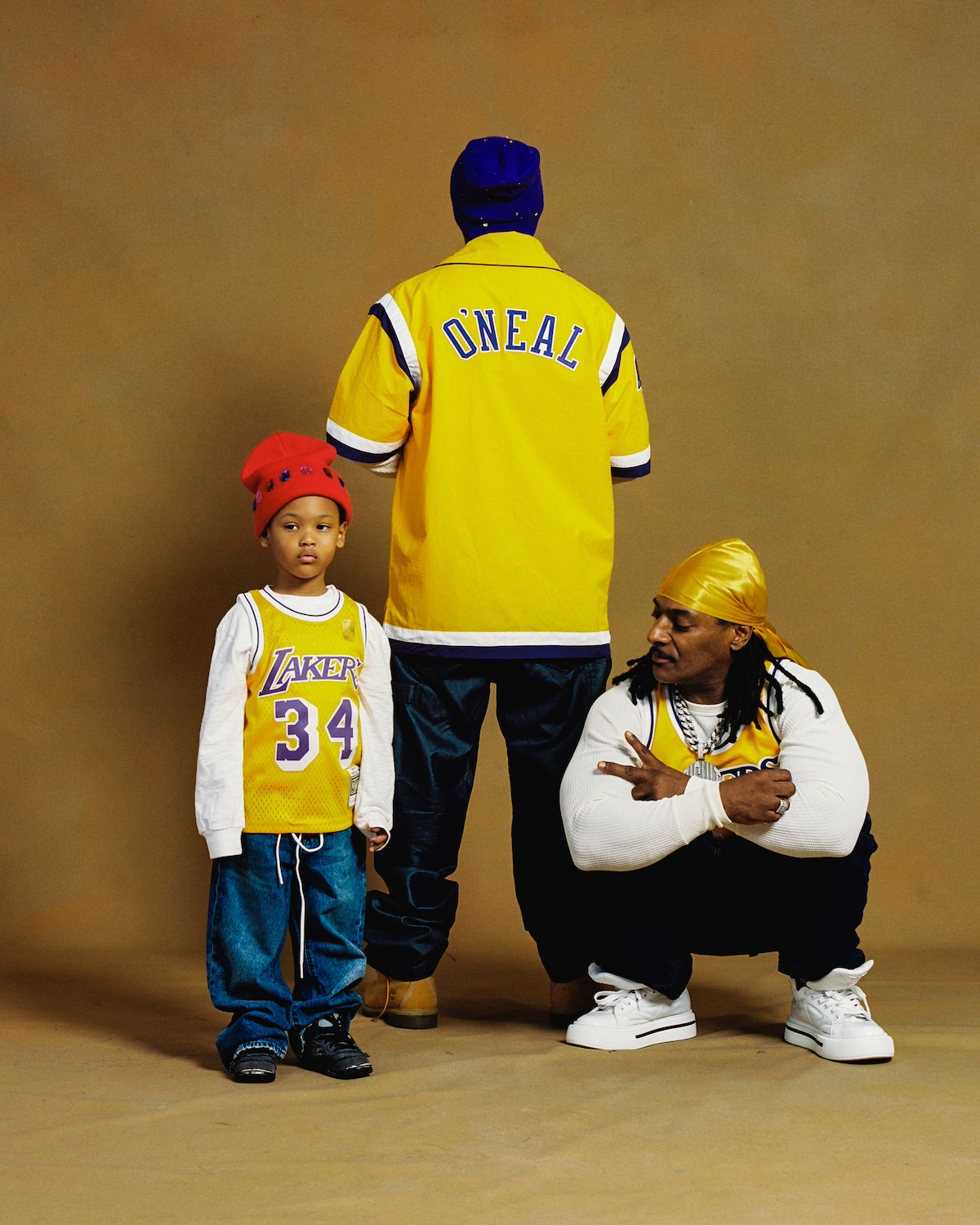

First writer off the rank, Jeffrey Wengrofsky, announced that he too was considering leaving the city before proceeding with the poem “I Wanna Move to New York,” conjuring a cleaner, cheaper, eucalyptus-cleansed city that will never be. Cynthia Ross (formerly of the all-girl punk band The ‘B’ Girls) invoked dead lovers and alternate selves that might want to fuck or stay home to clean the house. Poet and novelist Ben Fama reminded us of life’s simple rules, case in point: “don’t become the spectacle today.”
The Whitney Review's Whitney Mallett rose to the spectacle reading about menstrual blood on sheets, a perfect counterpart to a discombobulating painting of blood-glossed tiles on a nearby wall by exhibiting artist Lucy Tarquinio. Cabut himself transported us to a Camden of the ‘80s through the gaze of an amphetamine-fueled protagonist, operating on a logic of “amaranthine time” and “howling infinities,” capturing a future ghostliness of which we're all constituted.
Photos from the night below.


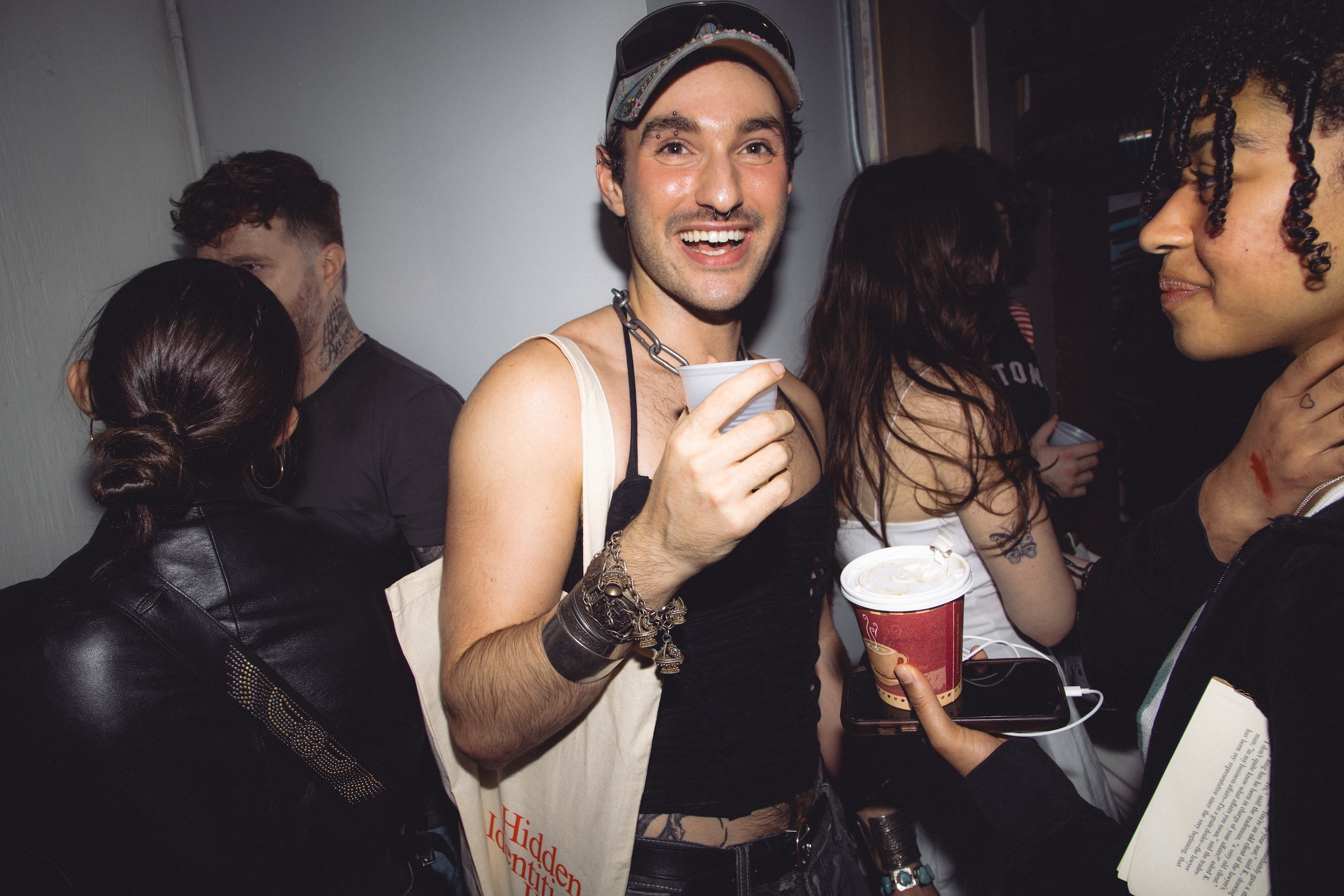

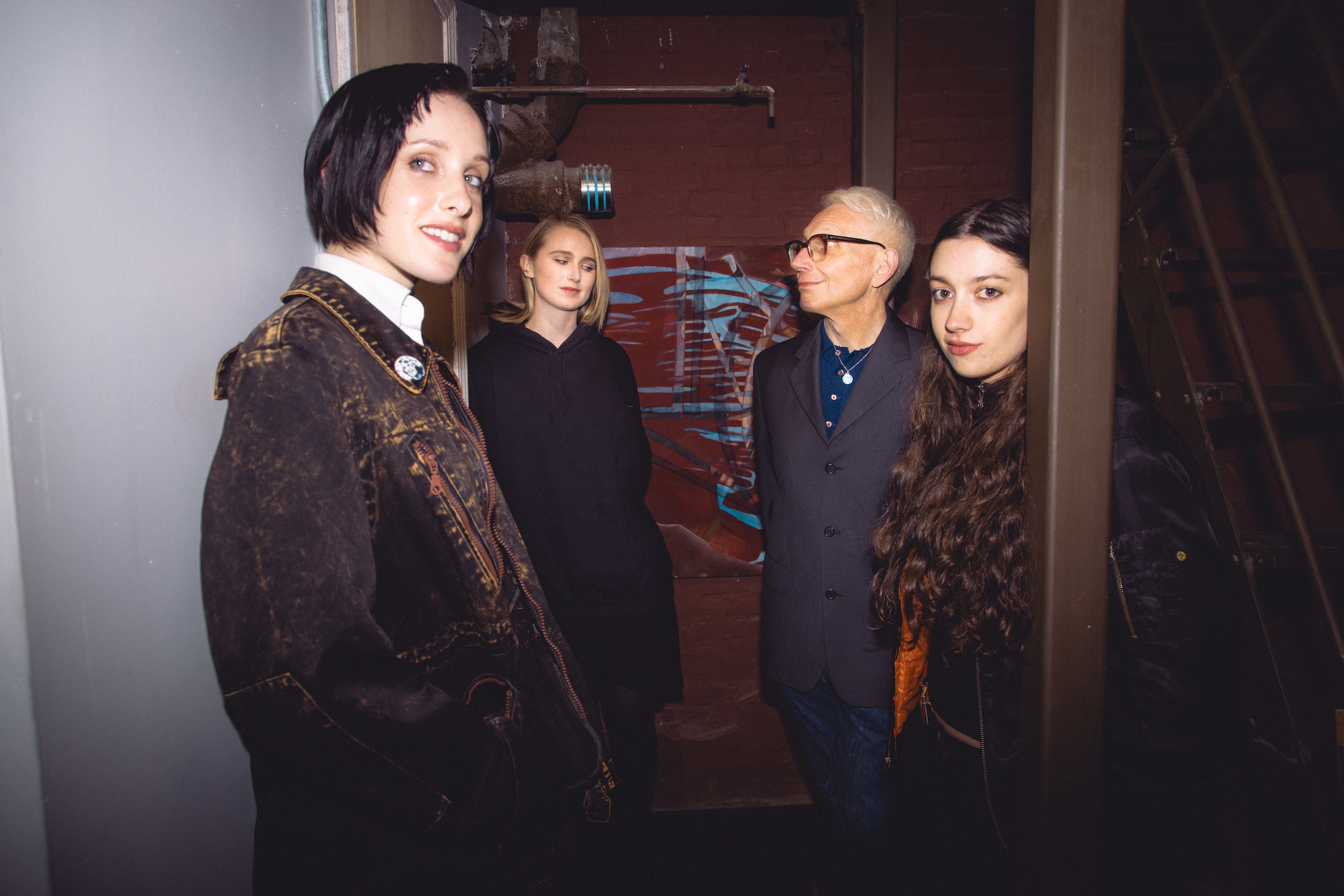







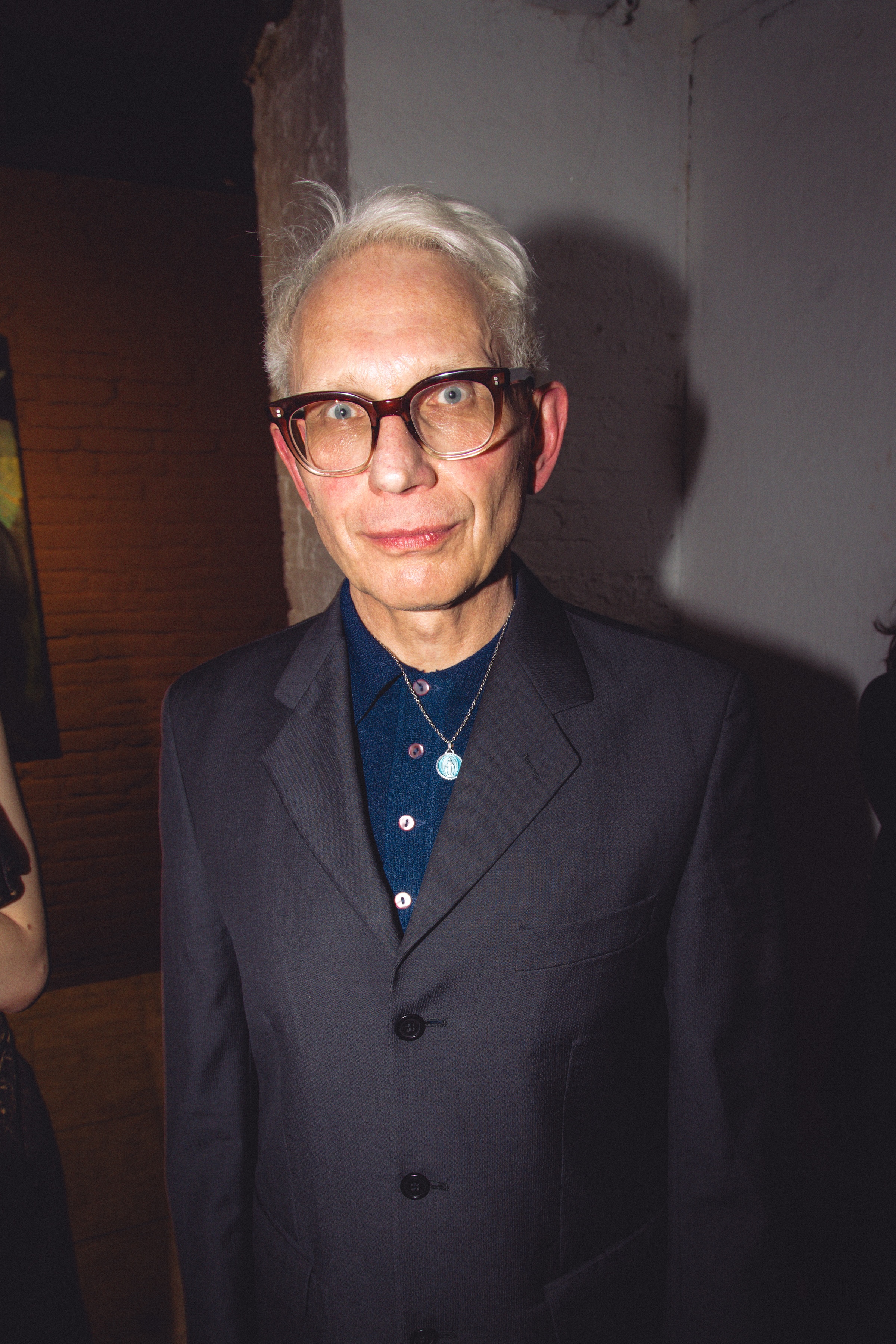

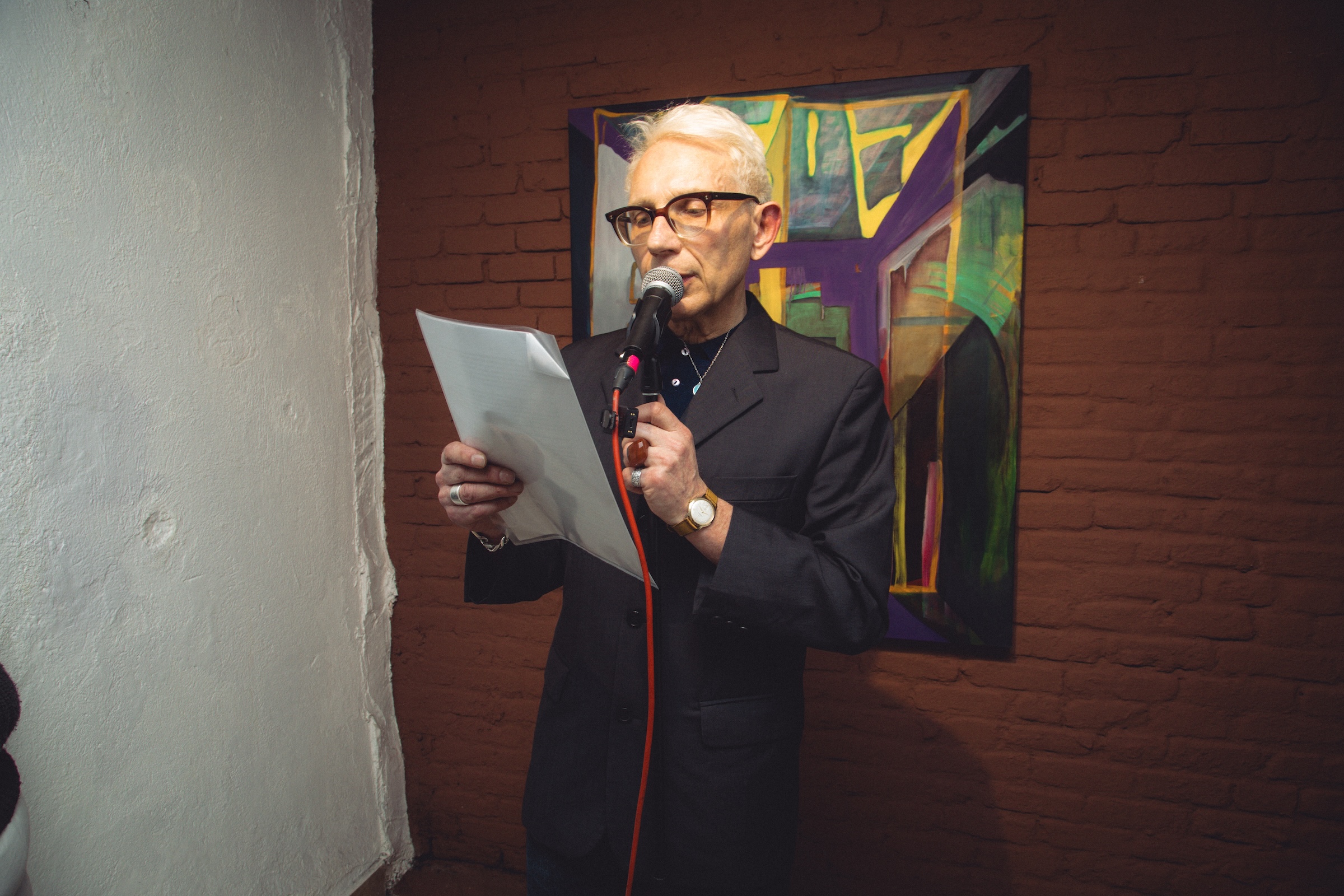
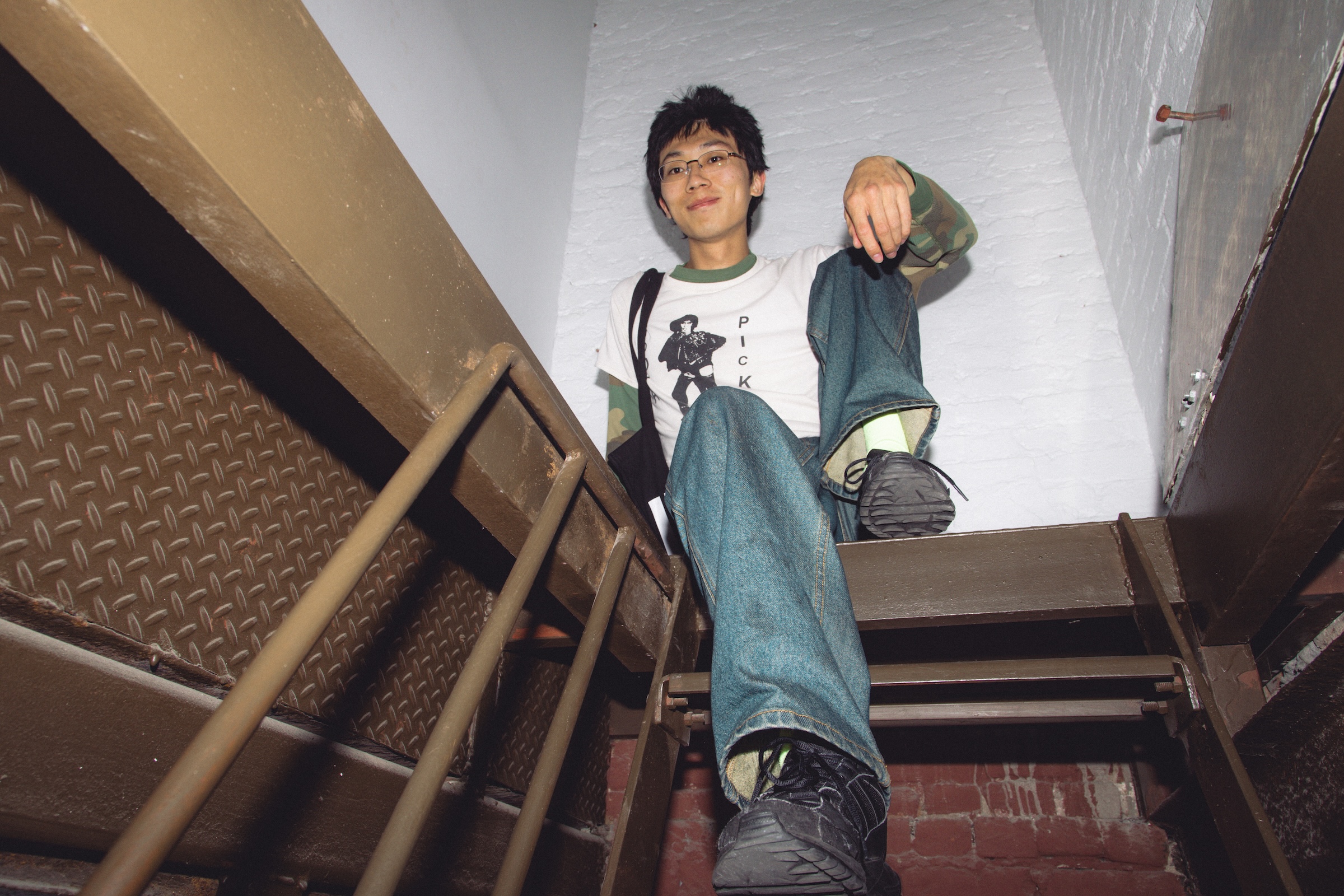




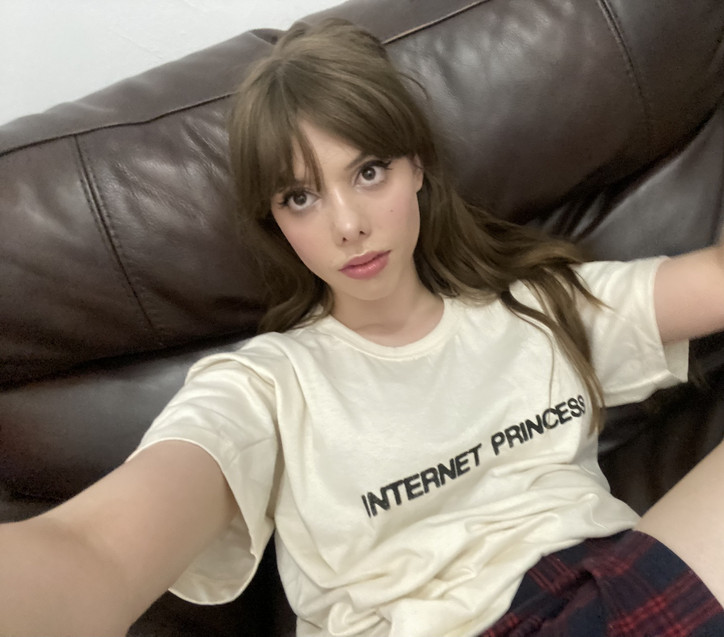
office — How did you get your start on Instagram?
I first made an account in middle school — 2014 or 2015. I did it secretly, against my parents' wishes. But after a while, I got paranoid they’d find it, so I deleted it. But once they were okay with me getting social media, I made a real Instagram. I was trying really hard to run an aesthetic Instagram account and failing.
How long have you been Joan.of.Arca?
I made the account in 2021 in college with my roommate. It was both of us at first, now it's only me. My friend came up with the name because we both liked listening to Arca, and it fit the kinds of usernames that were popular in the shitposter community at the time. I think she lost interest pretty quickly — it was a lot of work. So, a month or two in, it became just my account. We just wanted to store memes somewhere, but we were making our own memes, too. I still make my own memes, but I also repost some other stuff — it’s a real mix.
It blew up pretty quickly. That was really exciting for me because I’ve never been popular — not in school, not on the internet. But I was gaining like, a hundred followers a day and getting recognized by other accounts that I really admired. Noq we’re friends and they repost some of my stuff. Then, randomly, Courtney Love posted one of my memes. I think it’s become a copypasta now, where she’s like, “I love Gen Z memes.”
I thought you’d been doing Joan.of.Arca for a lot longer. Do you remember the original niche memes, like the starter packs of 2016? I was in the trenches making those.
Oh yeah. I've been in the trenches, but I wasn't making the memes at the time — at least not for public consumption — until 2021. But I'm very familiar with the progression of meme culture. And I remember starter pack memes. I think I used to make them on my finsta for my friends. That was a weird time.
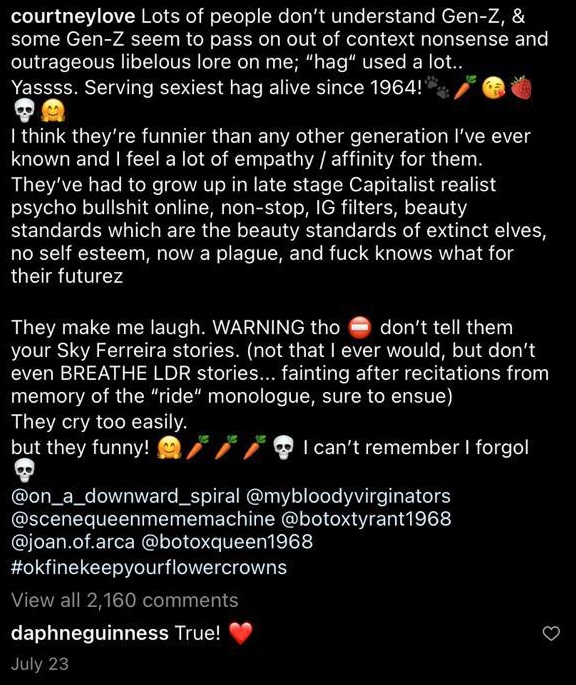

Why have we gone from these universal symbols — like the troll face and Pepe — to these hyper-specific things? The stuff that I’d see on Instagram back in 2016 would be like cyanide comics. And memes now are like — I don’t even know — a fucked up picture of a cat or something. We’re in a weird Dada revival with Gen Z kind of spearheading it. Why do you think that happened?
How did we lose our minds? There are a lot of theories about this. I did read an academic paper comparing 2016 election-era shitposting and Dadaism. Because Dadaism came out of a politically chaotic time after World War I, and they were all black-pilled.
After World War I, people were depressed because they saw all this new technology that was being used to kill people. So they were like, “If that’s what we’re gonna do, let’s put some eyes on a hat or whatever.”
A similar thing happened in 2016 when people hated both Hillary and Trump so much. Trump was unlike any presidential candidate, and he lent himself very easily to memes, especially with his 4chan army. That time was so chaotic and depressing and weird. That’s when I think the more shitpost-y memes — memes that didn’t make any sense — entered the mainstream.
Do you think shitposting is comparable to that “So random XD” phase of our lives?
We used to be explicit about what we were, saying “I’m so random XD.” But we find that cringe now, so we find a way to do the same thing without being explicit. Now, you signal how random you are through the memes you share. It reminds me of how people are like, “I don’t listen to The Smiths in a male manipulator-y way. I listen to them in a femcel blah blah blah way." Basically, the subtext of that is that they’re saying “I’m so random XD” but they don’t want to say it outright, so they do the same thing in a more subtle, cooler way.

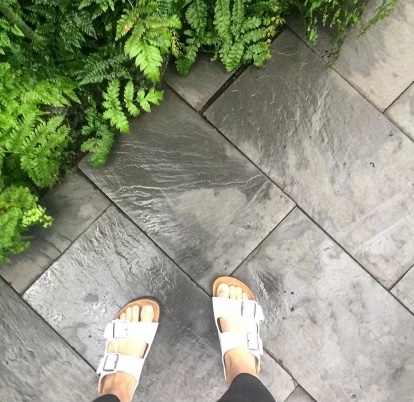
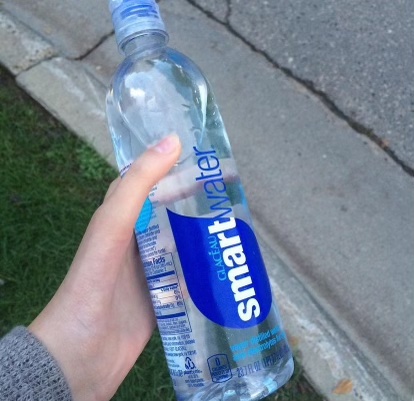

From Sophie's old aesthetic ig
COVID had a similar effect on meme culture. Toward the beginning of lockdown, I was using the Create Mode tool on Instagram, just typing out a lot of stuff. Memes would just be walls of text — confessionals, diary entries — at least for me. I was just lonely and bored, and I wanted people to hear me. I’m waiting for the new wave of memes because I’m tired of this ‘turn everything into content,’ confessional diary-type memes, even though it’s fun and I’m literally doing it. I’m calling out myself and the rest of the meme industry.
It seems like everyone just turns everything into content, selectively oversharing things that make them seem vulnerable but don’t actually make them vulnerable. No one can really do anything anymore without thinking, “This would make a great meme. This would make a great Substack post.”
We live in hell. And unfortunately, that’s how my brain works. People tell me I speak in memes or that I turn everything into a meme, which is true. I’m posting five or six times a day, so I have to pull the content from somewhere. But at the same time, no one needs to hear a confessional essay about — I don’t know — how you dropped a tangerine on the floor at a supermarket and started crying.
I don’t know what else to call it other than “esoteric signaling,” where people take these beautiful metaphors and overuse them to the point of reduction — all that shit about pomegranates and dogs.
Not everyone can be esoteric or different or special — we’re literally all doing that now. That’s the most common denominator. We need to do something different. We need to subvert the “subversive.” My friend Rayne Fisher-Quann wrote about this — this sounds like I’m calling her out, but I’m not. But she has this essay about how she was inspired by walking in the chip aisle and the illusion of choice — because there are a million chip brands but they all taste the same. But she was talking about the concept of hyper-individuality. We all want to present ourselves in a way that makes us seem different. But now, presenting ourselves as esoteric is just the average Joe thing to do.
The hyper-individualism is such an American thing. But also, everyone is so online, and we’re seeing so much of everyone and thinking there’s no way to distinguish ourselves, so we all try to distinguish ourselves in the same way, through the same shit.
We wanted to go against the grain, but we all went against the grain in the same way. And then we made it the grain. And, as Rayne has pointed out, it’s a great way to sell products to people.
It’s like when people show what’s in their bag, and it’s this highly curated image but they want you to think it’s not curated—
And they’d have like, a Haruki Murakami book in there. I know you don’t carry that shit around.
Damn. [I pan my camera to show my bookshelf behind me — five different Murakami books] He’s actually a great writer when he’s not weird about it.
Oh god. I didn’t mean to read you. I mean, I have books next to my bed where I have to promise they’re not there because I’m trying to be different. Culturally, efforts to signal how special we are have started to dictate our lives. On the internet, we’ve fetishized all these different things — especially authors, filmmakers, and musicians. We’ve turned them into ways we can form how we want to be perceived.
The hard thing is that a lot of the things people fetishize are actually good. I genuinely enjoy reading Joan Didion. And the internet is a great way to get recommendations. But at the same time, I have to wonder if I would’ve bought this book without some shitposter making a meme about it. And it’s so deeply embarrassing to admit, but I must do it. The internet shows us things that are genuinely good, but at the same time, I don’t know what my relationship is to these things. I don’t know if I like them or if I want them to make me cool. It’s what we’re seeing with the objects in the new starter pack memes. Have you noticed those — where it’s like, “What’s in boys’ pockets vs what’s in girls’ pockets?”
Yeah, and it’s just things that people think will make them look really cool, and references they know people will get but not enough. They want to feel slightly isolated in their understanding because that makes them seem superior.
You said it perfectly. We just reinvented starter pack memes, and now people use them as shopping lists because they want to be able to repost that meme and feel like they get it and no one else does.
It’s something about feeling part of a secret crowd. I’m gonna sound so insufferable, but have you read “Howl” by Allen Ginsberg?
I haven’t, but I know about it.
Basically, we were reading it in class, and he talks about all these things — going out and drinking every night with artists and writers, and everyone in my class was like, “Who does that?” And I was like, “I do that.” But it’s nice to be part of the group that gets it. But when everyone gets it, we’re all kind of circle-jerking each other and telling ourselves, “No one else gets it like me.”


Do you think your meme-focused mindset is something that’s happened since you started Joan.of.Arca?
Yeah. If you’re locked in and logged on, you’re bound to start framing your life in the context of those platforms because that’s where you’re spending a lot of your time. I’m going to sound so cringe but as a kid, people always thought I was funny.
People liked you as a child. That’s not cringe.
I can just anticipate the comments being, like, “Haha, she thinks she's funny.” But then that just proves the point — I’m literally thinking what comments will say about me and that informs how I do things. It’s not even just comments — I think everyone’s thinking about what people are saying about them.
We all have that freaky little third-person internal voyeur that’s like, “Oh you look ugly when you sit that way.” And it’s something that’s more pronounced when you align with femininity — why am I sucking in my stomach when I’m alone in my room?
Exactly. When I was younger, I was always trying to think of the most witty thing to say to people. I was good at having fun one-liners that made people laugh, and that felt very good to me. To an extent, that translates to memes now. But I spend so much time devoting creative and mental energy to making memes, finding memes, thinking about memes — naturally, I’m going to frame my experiences in the context of meme-ability.
That’s a lot less depressing than the way I was thinking about it, which is good.
Well, how were you thinking about it?
I was in a queer aesthetics class and we were talking about identity construction and asking if the queer identity is reliant on performance — signaling through dress, music, etc. It’s like, “If you’re gay and no one clocks you, are you really gay?” Maybe not necessarily that question, but…
Internal self-recognition through the other. You want to be recognized by the group. And you’re thinking that it’s kind of depressing that you have to anticipate how you’ll be understood.
At first I was, but that’s a nicer way of thinking about it, because we are social people.
I know what you mean, though. I don’t think it’s too depressing for me, because it’s kind of a way to cope. If something really shitty happens, I can make a meme about it — I can externalize it and then I feel a little bit better about it. It’s like those old Tumblr mental health tips, where they tell to you to write something down on a note, and then throw it in a jar, and then release the jar into the water or something. That’s kind of how I feel about my memes.
When the story expires, that’s your jar in the water.
Exactly. Plus, I post so much that there are some memes that I’ll never see again.
I think a lot about my story archives and the shit that I’ve deleted, and I’m like, “What was in there?” What have I said that I will never remember?
People say that once you put something on the Internet, it’ll never go away and you’ll never escape it. But I’ve found that there are so many things that I’ve done on the Internet that I can’t find. Things disappear, links break, there’s so much entropy, and at the same time, there’s a constant flood of content that’s pushing the old stuff into obscurity. It’s so easy to lose things on the Internet, and it’s a bit scary. That’s why I love the Internet Archive and Wayback Machine, because at least there’s some documentation of the older Internet. The fact that the Internet Archive exists just shows how fleeting stuff on the Internet actually is. Either you delete stuff, or it just gets buried, but chances are you’re not going to find it again. And I don’t know if it’s for better or for worse. There’s definitely things I don’t want to find because they’re cringe. I’m friends with a lot of really smart people who are really good at articulating themselves about the Internet and I get really nervous because I’m like, “Oh my god, I’m so fucking dumb.”
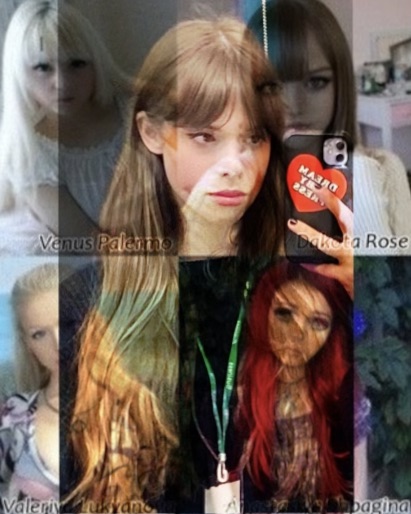
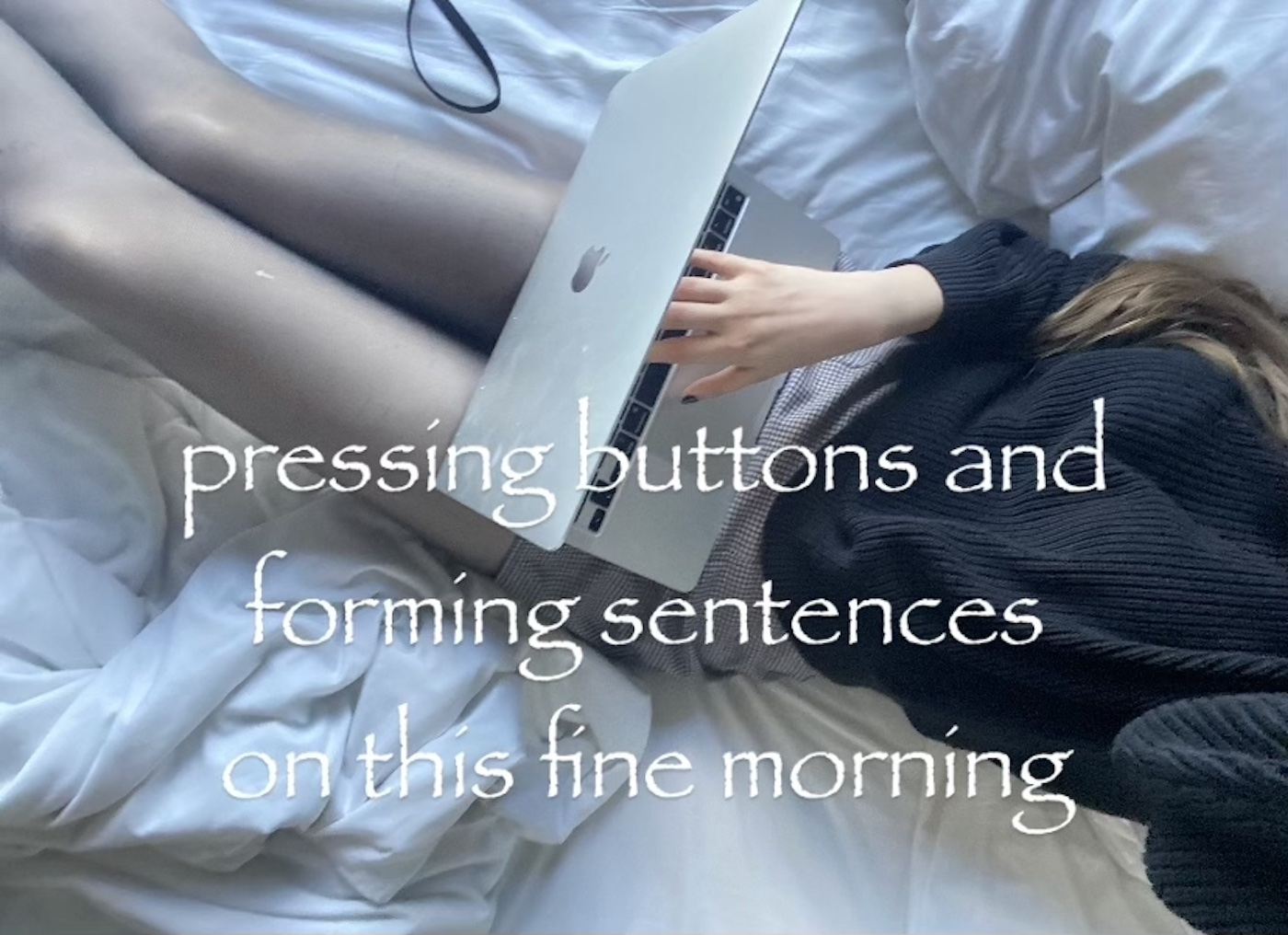

You’re not dumb. Honestly, the way you talk about processing and contextualizing through memes — that’s how a lot of writers function, and the only reason you don’t think you’re as smart as them is that memes haven’t been accepted as an equally valid form of media compared to long-form writing.
And there are a lot of meme pages who are really good at articulating themselves. Honestly, a lot of my memes are just shit that pops into my head. Sometimes it’s really not that deep. I wish I had something profound to say, but all I know is that we need to start over. We need the flood.
Do you want to be on the boat?
Oh my god. That’s the most amazing existential question I’ve ever heard.
I didn’t mean for that to be deep. My bad. But like, I have a lot of finals coming up and I’m really behind on them. So if I’m not on the boat, that’s fine. They’ll find another Asian chick with a mullet to put on there.
For selfish reasons, I’d want to be on the boat because I’d want to see who else is on the boat. I mean, here I go thinking in memes again, because that would be such a funny meme — ”Who I’d Put On Noah’s Arc.” But I’d want to be on the boat because I do want to have a hand in the new wave. It’s a personal challenge for me, to make memes that are less derivative and more interesting — less annoyingly signaling how cool and amazing and intelligent we are. I’m tired of it. And I participated in it, to some extent. And now I want to be part of the change. And that will require some work on my part — to create the new wave, but I don’t know if I’m worthy. There are a lot of meme pages who are doing really original work, and they’re not as big as me.
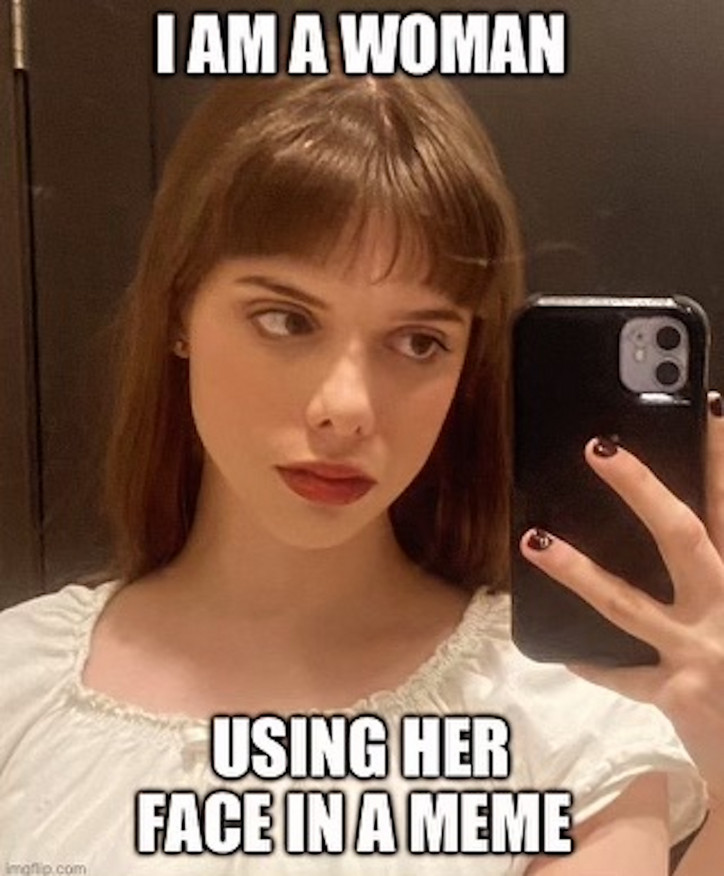
Who are your underrated meme pages?
Émilie_in_Montreal — she’s really smart. She’s a legit philosopher — Harvard or something. She’s been posting a lot of deer memes, which is something I did a lot too. But she combines her background in philosophy with her very unique mind — you never know what she’s going to think about something and she just says it.
I think accounts that do their own thing — that make memes that make them laugh even if no one else cares — I think those are the best memes, because I encounter them all the time and I don’t even understand what they’re trying to say. One of my favorite kinds of meme pages are school meme pages, where it’s just meant for their friends and people who go to that school. I love when those go viral and people in the comments are like, “Who is this?” I love it when those kinds of meme pages that aren’t meant to leave the confines of their community enter more mainstream spaces. Maybe that’s just another way of me trying to be esoteric.
Again, it’s that question — how much of these things do I actually like and how much of it is just me subconsciously trying to be cool? That gets me to my whole problem with this phenomenon of people adding “-core” to everything, because it’s such a marketing tactic. Lifestyle magazines and partnering brands profit off of people striving to become these random identities and post shit like “Seven products you need to become a whatever-core girl.” And it’s the same thing with Depop tags. Your 2006 Gap hoodie is not #twilightcore #y2k #grungecore #scenecore.
It’s a reiteration of those BuzzFeed articles — ”20 things you need to check out on Amazon right now". It’s repackaged to appeal to people like us who fall victim to the allure of hyperindividuality. It feels really dystopian walking into a bookstore and seeing a “Spicy BookTok” section.
Those people are addicted to masturbating.
[The call cuts off here because I didn’t pay for premium. After some emailing, we set up another link.]
I am so sorry that is the last thing you heard me say.
No, you’re right and it’s funny. But it’s fascinating that people are basically taking bad Wattpad fanfiction and putting it in print and having it in Barnes and Noble. And they’re all so similar and organized by tropes. It’s basically organized in the same way that people would use hashtags on fanfiction sites. Now they’re using that as a marketing tactic at places like Barnes and Noble. Now I can’t go into a bookstore without encountering #booktok and I can’t go into Sephora without seeing #CleanGirlAesthetic. We create these curated aesthetic-slash-identity labels even if we log off. The internet and the real world are so meshed now.
This was a piece we were trying to write but never could — we’re so attracted to the labels because it gives the illusion that we’re understood by people.
It’s the question of our generation, at least for this decade.
We’re so cooked.
Bring the flood.
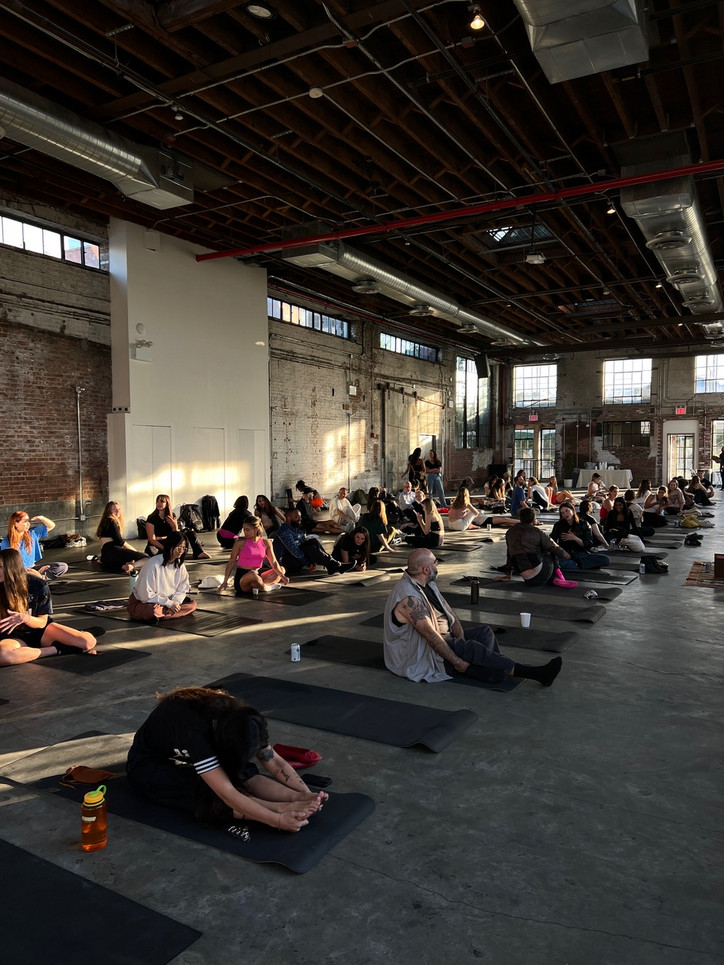
The turnout was a true reflection of Bushwick's diverse community, with people from various backgrounds, industries, and walks of life coming together for a shared experience. Despite the mixed initial response, there was a unanimous acknowledgment of the profound effects of breathwork. As the session progressed, a handful of participants found themselves overwhelmed with emotion, even shedding tears of release. Each participant emerged from the session with a renewed sense of clarity and purpose, having tapped into a deeper understanding of themselves and the world around them.
As the class came to an end, participants slowly reentered the streets of Bushwick with a shared sense of gratitude. In a world often filled with chaos and uncertainty, the simple act of paying close attention to one's breathing can become a powerful tool for healing and self-discovery.
